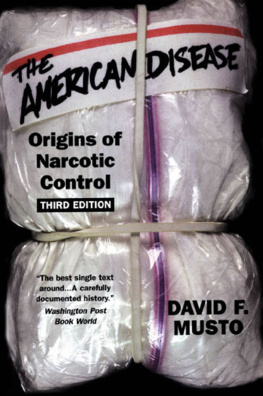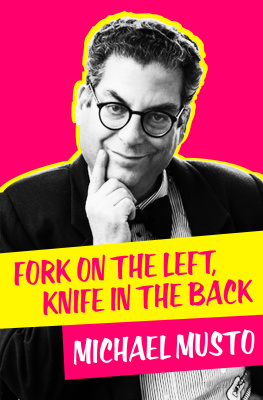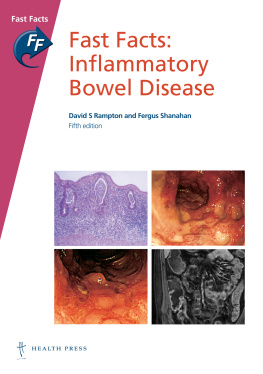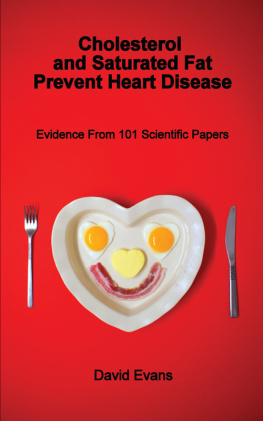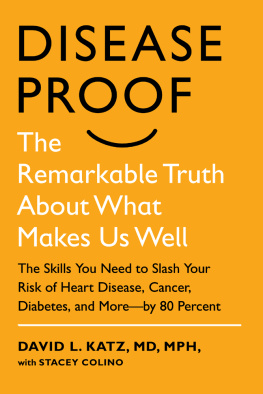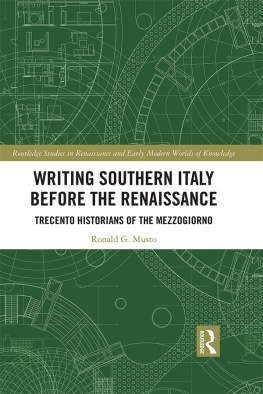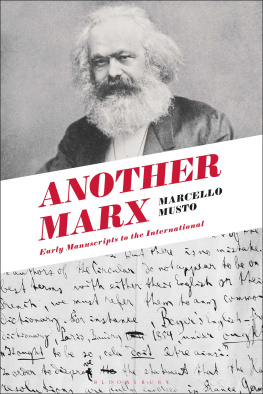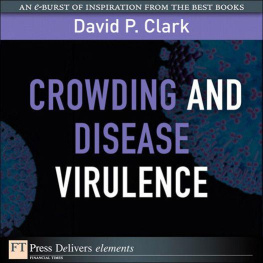David F. Musto - The American Disease
Here you can read online David F. Musto - The American Disease full text of the book (entire story) in english for free. Download pdf and epub, get meaning, cover and reviews about this ebook. year: 1999, publisher: Oxford University Press, genre: History. Description of the work, (preface) as well as reviews are available. Best literature library LitArk.com created for fans of good reading and offers a wide selection of genres:
Romance novel
Science fiction
Adventure
Detective
Science
History
Home and family
Prose
Art
Politics
Computer
Non-fiction
Religion
Business
Children
Humor
Choose a favorite category and find really read worthwhile books. Enjoy immersion in the world of imagination, feel the emotions of the characters or learn something new for yourself, make an fascinating discovery.
- Book:The American Disease
- Author:
- Publisher:Oxford University Press
- Genre:
- Year:1999
- Rating:3 / 5
- Favourites:Add to favourites
- Your mark:
- 60
- 1
- 2
- 3
- 4
- 5
The American Disease: summary, description and annotation
We offer to read an annotation, description, summary or preface (depends on what the author of the book "The American Disease" wrote himself). If you haven't found the necessary information about the book — write in the comments, we will try to find it.
The American Disease — read online for free the complete book (whole text) full work
Below is the text of the book, divided by pages. System saving the place of the last page read, allows you to conveniently read the book "The American Disease" online for free, without having to search again every time where you left off. Put a bookmark, and you can go to the page where you finished reading at any time.
Font size:
Interval:
Bookmark:
American
Disease
Origins of Narcotic Control
THIRD EDITION
David F. Musto, M.D.

1999

OxfordNew York
AthensAucklandBangkokBogotaBuenosAiresCalcutta
CapeTownChennaiDaresSalaamDelhiFlorenceHongKongIstanbul
KarachiKualaLumpurMadridMelbourneMexicoCityMumbai
NairobiParisSaoPauloSingaporeTaipeiTokyoTorontoWarsaw
and associated companies in
BerlinIbadan
Copyright 1973, 1987, 1999 by David F. Musto
First published in 1973 by Yale University Press
Expanded edition first published in paperback in 1987 by Oxford University Press, Inc.
198 Madison Avenue, New York, NY 10016
Oxford is a registered trademark of Oxford University Press
All rights reserved. No part of this publication may be reproduced, stored in a retrieval system, or transmitted, in any form or means, electronic, mechanical, photocopying, recording, or otherwise, without the prior permission of Oxford University Press.
Library of Congress Cataloging-in-Publication Data
Musto, David F., 1936
The American disease : origins of narcotic control / by David F.
Musto.3rd ed. p.cm.
Includes bibliographical references and index.
ISBN 0-19-512509-6
1. Narcotic habitUnited StatesHistory.2. Narcotics, Control ofUnited StatesHistory.3. Narcotic lawsUnited StatesHistory.4. Narcotic addictsRehabilitationUnited StatesHistory. I. Title.
HV5825.M84 1999
362.29'3'0973dc2198-24976
For Jeanne
and
Jeanne-Marie, David, John, and Christopher
APPapers of Harry J. Anslinger. Deposited in the Pennsylvania Historical Collections of Pennsylvania State University.
BPPapers of the Rt. Rev. Charles If. Brent. Deposited in the Manuscript Division of the Library of Congress.
BCR Records of the Bureau of Chemistry, Department of Agriculture. Deposited in the National Archives; all references are to file no. 140 of Record Group 97.
BuP Papers of Dr. Willis P. Butler, Shreveport, La.
JDR Records of the Justice Department. Deposited in the National Archives; all references are to box 7 of Record Group 60.
PHSR Records of the Public Health Service. Deposited in the National Archives; all references are to Record Group go, file no. 2123.
RPU Records of the Prohibition Unit, Bureau of Internal Revenue, Department of the Treasury. Now in the Justice Department, Bureau of Narcotics and Dangerous Drugs.
WP Papers of Dr. Hamilton Wright. Deposited in the National Archives, Record Group 43, Records of United States Delegations to the International Opium Commission and Conferences, 1909-1913 (entries 33 through 46), and Records of Hamilton Wright (entries 47 through 52).
Three editions of The American Disease have been published at three distinctive periods in our current wave of drug use. In 1973 the United States was moving in the direction of drug-use toleration, a trend that would reach its peak in the years 1978-80. Older, punitive drug laws were being relaxed, and a wide audience listened to arguments for decriminalization or legalization as exemplified in the reports of both the National Commission on Marihuana and Drug Abuse (1972 and 1973) and the Consumers Union book Licit and Illicit Drugs (1972).
An expanded edition of The American Disease appeared in 1987 in the midst of a restoration of severe penalties against drug abusea year after Congress passed the Anti-Drug Abuse Act of 1986 (which established mandatory minimum sentences) and just before passage of a similarly titled Act in 1988 (which reinstated the death penalty for major traffickers in some circumstances).
This edition arrives at a time of less certain trends. Strong antagonism toward drugs is reflected in unprecedented levels of federal funding for law enforcement and public information, but at the same time, movements to relax anti-drug laws have found voter support in several states. Since 1992 marihuana (and tobacco) use has risen among 12- to 17-year-olds, and there are signs that the decline among those over 17 may have leveled off.
Beyond this uncertainty, however, a new attitude has emerged, one that is bound to affect our perception of drug abuse, its treatment, and drug users themselves. Over the last decade, environmental and developmental explanations for human behavior that were so popular in the 1960s have given way to increasingly persuasive biological explanations. Now that studies can be conducted on a molecular scale, we can assume that much of the biological nature of addiction will soon be explained, perhaps in the next decade. Such research may also alter our view of the addicted person should biological factors prove more relevant to addiction than defects of will or upbringing. The problem that could arise from this new perception (new to our generation, anyway: recall Dr. Bishop) is that a society looking for a scapegoat can interpret it in various ways. The past illustrates that biological determinism can be taken far beyond its scientific basis, and can powerfully influence public policy.
The current drug problem arose in the mid-1960s, over three decades ago. When it first surfaced, most thought it would be over in a few years. I recall a talk in the early 1970s with James Markham, a highly respected reporter for the New York Times who reviewed the first edition of this book. Having covered the Timess drug beat for a couple of years, he told me that he had planned to continue for one or two more in order to see the end of the problem before moving on to some other topic. After reading The American Disease, however, Markham realized that the drug problem was not going to disappear any time soon, and promptly applied to go to the Saigon bureau to cover the Vietnam War, where he began a distinguished career of foreign correspondence.
It was also Markham who pointed out to me that I had not explained the origin of the title anywhere in the book. I was surprisedbut not surprised enough, apparently, to remember to include the explanation in the next edition or the Spanish translation. The definite article is my responsibility.
For their assistance in the preparation of this edition, I want to warmly acknowledge Pamela Korsmeyer, M.A., and Thomas Maulucci, Ph.D. My research was supported by the National Institute of Drug Abuse (NIDA) grant No. 1 K05 DA00219-01.
New Haven, Connecticut D.F.M.
May 1998
NOTES
. David F. Musto, La Enfermedad Americana: Origenes del Control Anti- narcoticos en EU (Bogota: Tercer Mundo Editores, 1993).
. N.Y. Times, 30 May 1919.
Drug use is linked to some of the most controversial issues we face today: drug testing at school and the workplace, controlling the spread of AIDS among and from those who use needles when taking drugs, attempts to stop the flow of drugs into the United States, and efforts to reduce the demand for drugs. We also face the menace of crack, a smokable form of cocaine, which has frightened Americans with its seductive attractions and sad effects on users. We have gone through over two decades of widespread drug use, which has made us weary of the substances and their tragic consequences for so many users.
How can we understand this epidemic? It is important for us to know the history of drug abuse in America if we are to make wise decisions concerning drug abuse now and in the future. The United States has an extensive history in the use and abuse of drugs reaching far back into the nineteenth century. When we are in the middle of a drug crisis, however, we tend to forget this history and assume that we must face our drug onslaught with no guide- posts. Unaware of how we have overcome past drug problems, we are liable to panic.
Font size:
Interval:
Bookmark:
Similar books «The American Disease»
Look at similar books to The American Disease. We have selected literature similar in name and meaning in the hope of providing readers with more options to find new, interesting, not yet read works.
Discussion, reviews of the book The American Disease and just readers' own opinions. Leave your comments, write what you think about the work, its meaning or the main characters. Specify what exactly you liked and what you didn't like, and why you think so.

